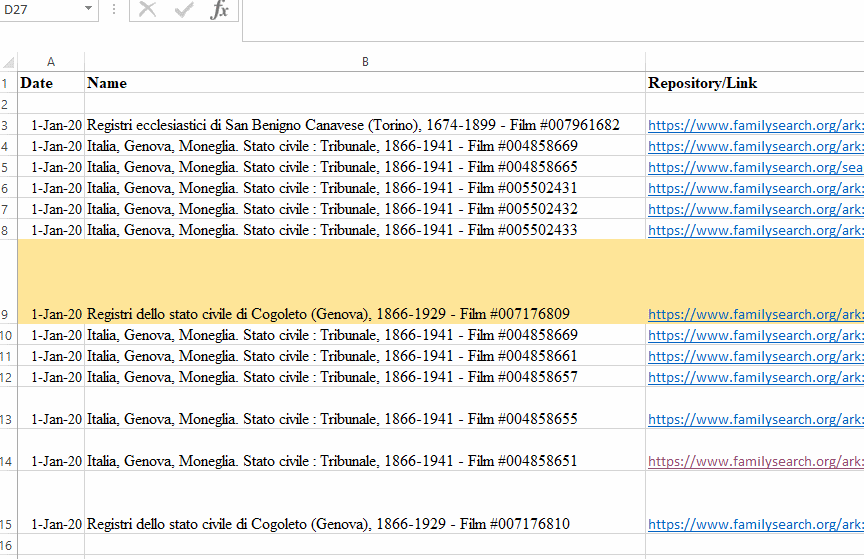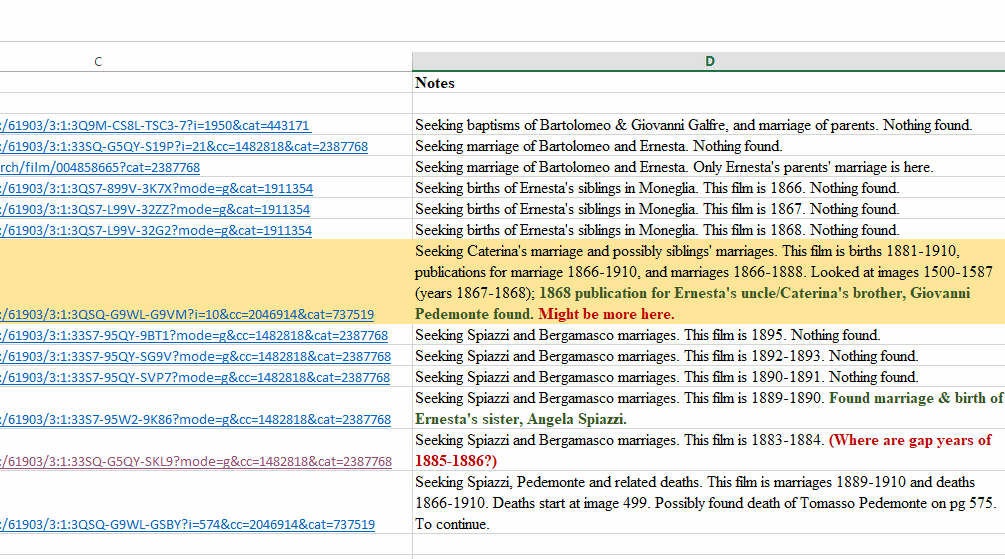In January of 2019, I put out the declaration that 2019 would be the year I found Great-Great Grandma Emma. After 26 years of searching for her place of birth without luck, that was a pretty bold thing to say. Especially since I did everything wrong in 2019. Here’s what we can all learn from my mistakes:
Set a Specific Goal
“Finding” my great-great grandmother meant, to me, answering… um, about a bajillion unanswered questions. While it mostly came down to wanting to know where she was born, I wasn’t specific about that. “Finding” someone is hardly a goal in genealogy, because we’re always seeking someone or something, a fact, a story, proof, looking to fill in gaps in someone’s life… It’s a lot to do and take in, so having a well-articulated goal can help you focus your efforts. Um, something else I didn’t do.
Focus Your Efforts
If you have a specific goal or objective, it’s so much easier to focus your efforts. Otherwise, we might approach our research in a haphazard manner and waste time and energy. That specific goal will allow you to narrow your focus to the places you need to look – certain cities or towns, repositories, and more. How are you going to keep track of all of that, though?
Have a Plan
I didn’t have a plan for Emma. Beyond my bold statement to anyone who happened to read it, I was operating on sheer stubbornness. That can be fun for a little while, but it’s not productive in the long run. A plan based on your goal will go so much further.
Where have you looked? Where do you think you should look next? What records have you obtained? Which records are still out there? Whether you’re a spreadsheet person, listmaker, or plan in some other way, do craft something that allows you to make notes or check off a task. Finally, make sure you’re sticking to the plan with some accountability.
Track Your Efforts
Accountability doesn’t have to be public, such as with blogging or social media posts. Though that can be fun and add an extra layer of motivation, the real accountability should be to yourself. The beauty of having a plan is that you can also add a tracker to check off the things you accomplish, make notes on what you found or didn’t find, and keep track of the dates of research, repositories visited or databases searched, and more.


Don’t do what I did with my great-great grandma, which was basically throwing something at the wall and seeing if it stuck. That’s not the most logical or efficient way to get things done. Did it work? Heck yeah, it did! On December 4, a little discovery based on a suggestion from a NEHGS Research Consultation led to me cracking the case wide open on December 13, 2019! Somehow, I did it. I met my unspecific, unfocused, unplanned goal with a couple weeks to spare before the end of the year.
Would I suggest the same route for you or myself again? Maybe, if you’re feeling adventurous. 😉 So much in family history research seems to come down to timing and/or serendipity, anyway. But I’d like to think that we can help those things along with a little smart productivity.
Hi Wendy! I have an old black and white photo of my Grandma, Viola Leik (Miller). She is from a very large family. Is there a way to identify each individual in the photo? Unfortunately, most are gone from this world. I could send it to you via mail. Any help would be appreciated. I check your blog periodically. But send a message if you’d be interested. Thanks, Jill
There certainly could be a way to identify each person based on their ages! I would be happy to be look at it.